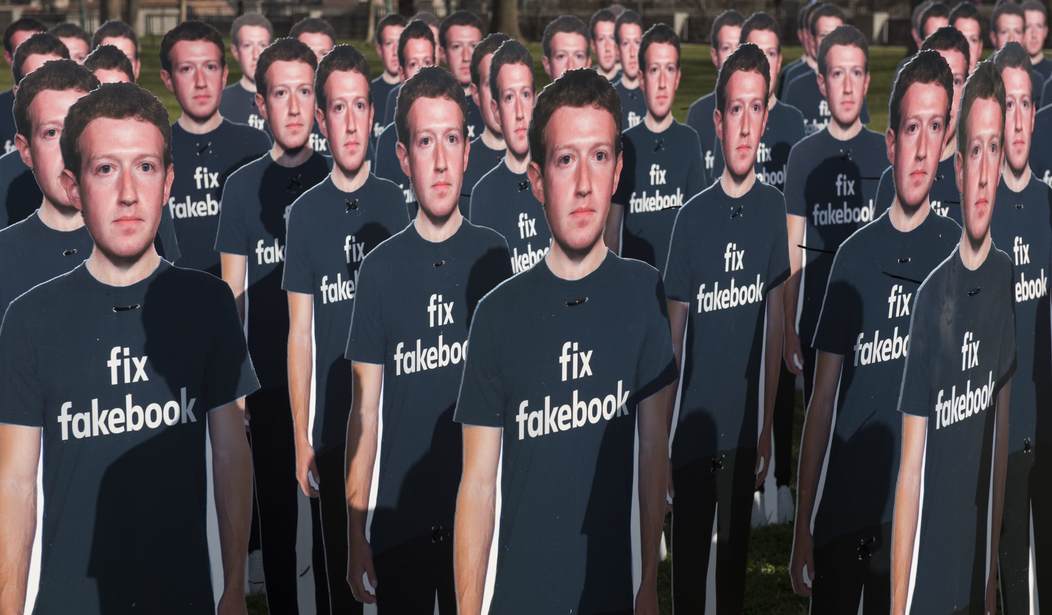At the Viva Technology conference in Paris, France, Thursday, Facebook CEO Mark Zuckerberg told the audience that he envisions a “Supreme Court” that would evaluate appeals from users who have had their posts removed from the social media platform.
Asked about some of his goals for the future, Zuckerberg said that he wants to spend time focusing on governance of the two billion people in the Facebook community. “So one of the big challenging areas is, you know, people have differing views of what content is appropriate in different countries around the world, ” he said. “So one of the ideas that I’d eventually like to get to is how can we get to a set of content principles that are more informed by people around the world. That’s not just us, you know, sitting in an office in California trying to set these rules for people around the world.”
Zuckerberg said he’s been meeting with academics and government officials to try to better understand the problem and evaluate possible solutions. He hopes that in the next six months to a year Facebook will “come up with some models for having some more community-oriented governance” that would include an appeals process.
“Right now we build the rules for what content should be allowed in the service,” he explained. “And if we decide that your post is hate speech, then we take it down and today there isn’t—there hasn’t historically been a way for you to appeal.” He believes that any community governance system should have an appeals process that includes an independent review, though he didn’t elaborate on who might make up the governance system.
“So first, we’re building a system where people can now appeal decisions we make on content. And then eventually what I’d like to get to is something where we have somewhat of a Supreme Court or a higher appellate court that’s more independent that’s made up of people who maybe aren’t employed by Facebook but have some understanding of what the policies are and the principles that we’re trying to have for the community,” he continued. “So that way, if someone in the community says, ‘hey, I don’t like the decisions that you guys made and I also think you got the appeal wrong,’ they should also be able to appeal to this broader group and have that group make some decisions that are binding for how our community operates.”
Zuckerberg thinks that it will take some time to get the process right, “but when we’re serving billions of people around the world, I do think that we need to be informed by some of these governance principles around due process and things like that, that I think have emerged in a lot of other places around the world.”
Facebook has been under fire for its seemingly arbitrary rules about what is and is not allowed on the site, and many conservatives have complained that their content is being censored on the social media platform. The announcement earlier this year that the company would be using predominately left-leaning “independent” fact-checkers to root out fake news did little to instill confidence in users who believe their content is being treated unfairly.
Nonetheless, adding an appeals process is a step in the right direction. Right now its nearly impossible to get answers from Facebook when a post has been removed, so this may help to increase transparency about their community standards.
The question that remains—one that Zuckerberg seems to conscientiously avoid addressing—is how Facebook determines what constitutes hate speech, bullying, and inappropriate content. It’s fairly easy to include terrorism, threats, and crime under the umbrella of hate speech, but things get murky—not to mention contentious—when it comes to topics like abortion, homosexuality, guns rights, and religion. There’s a small but highly vocal percentage of the population that believes any criticism of leftist ideology should be lumped into the hate speech category, even if it’s based on sincerely held religious beliefs. Disagree with the LGBT agenda? You’re a hateful bully. Want to tell the truth about abortion? You’re triggering someone! Want to have an honest discussion about race in America? RACIST!
More than likely what will happen is that Facebook will hire a bunch of left-wing Silicon Valley holier-than-thous to adjudicate disputes and we’ll be right back where we started from — with a playing field that favors liberals and silences conservatives.
Follow me on Twitter @pbolyard










Join the conversation as a VIP Member